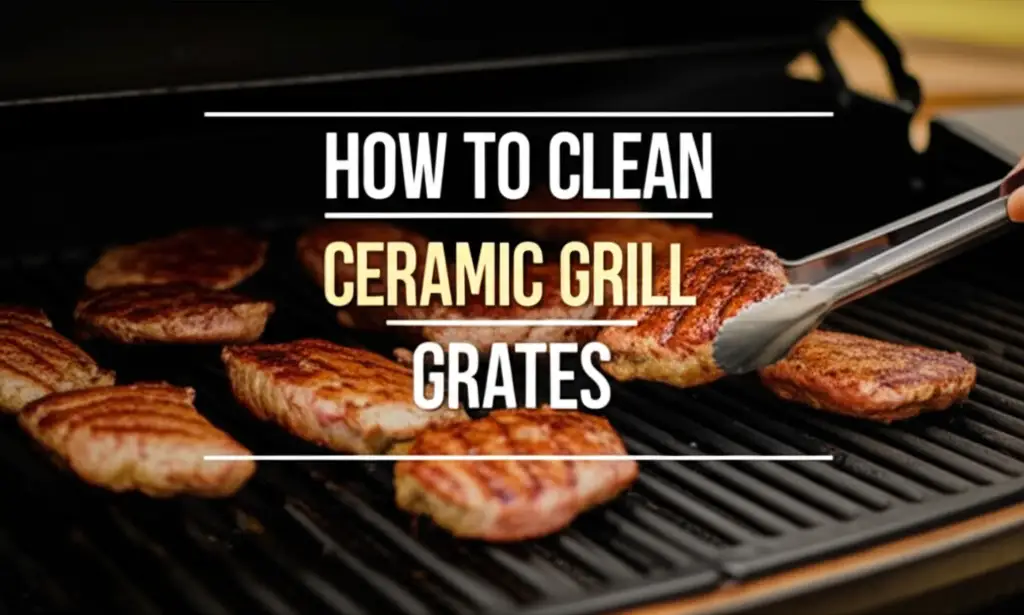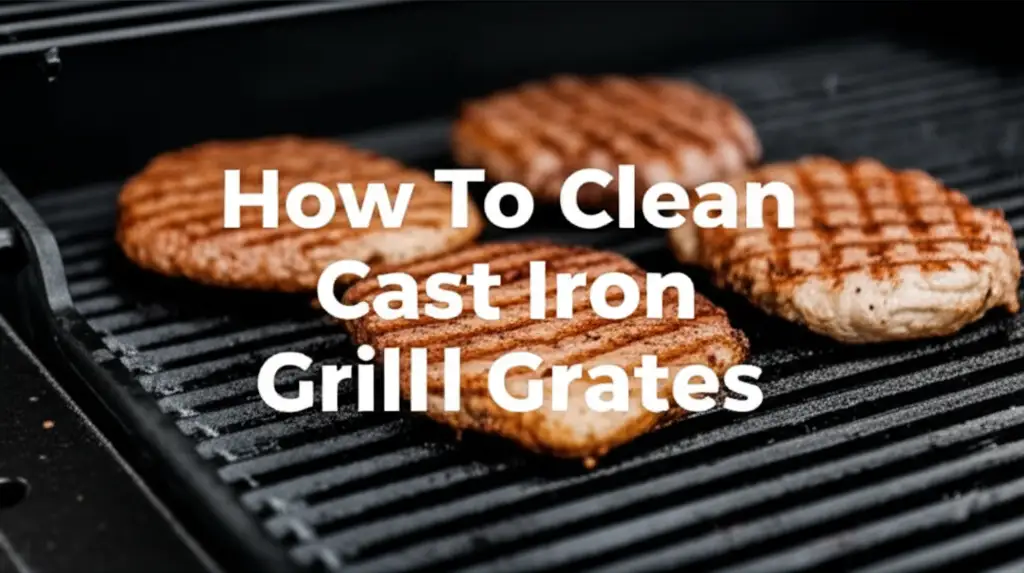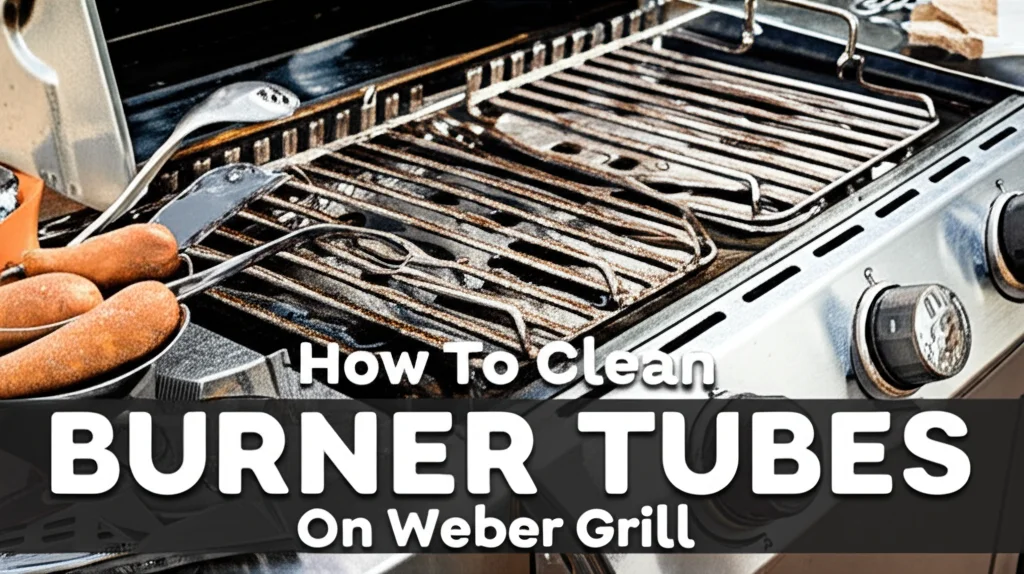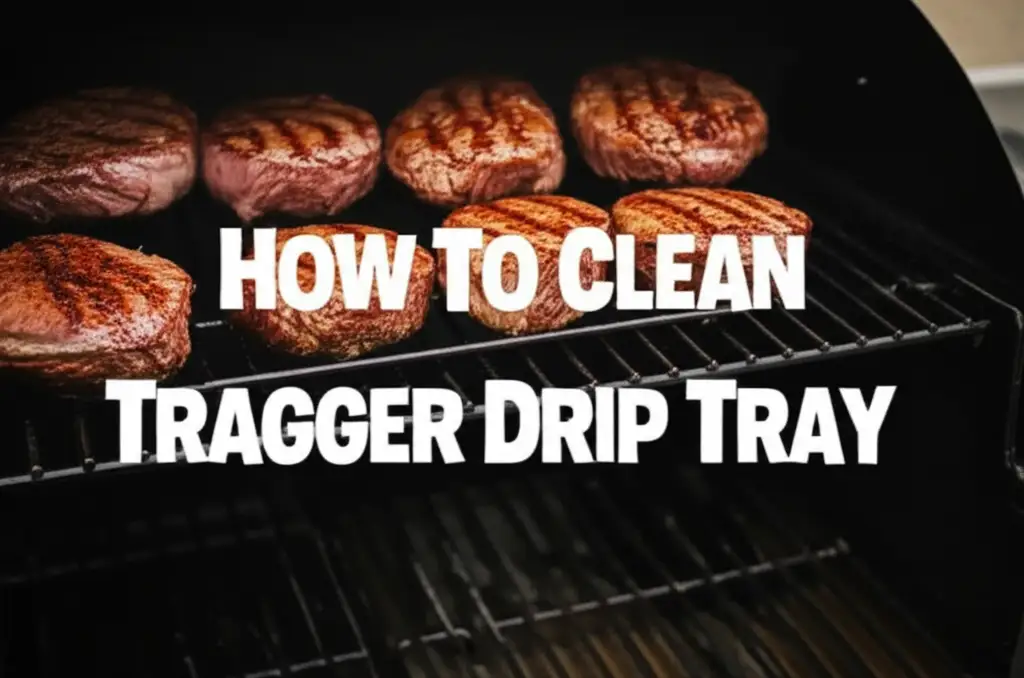· Grill Maintenance · 18 min read
How To Clean Propane Grill
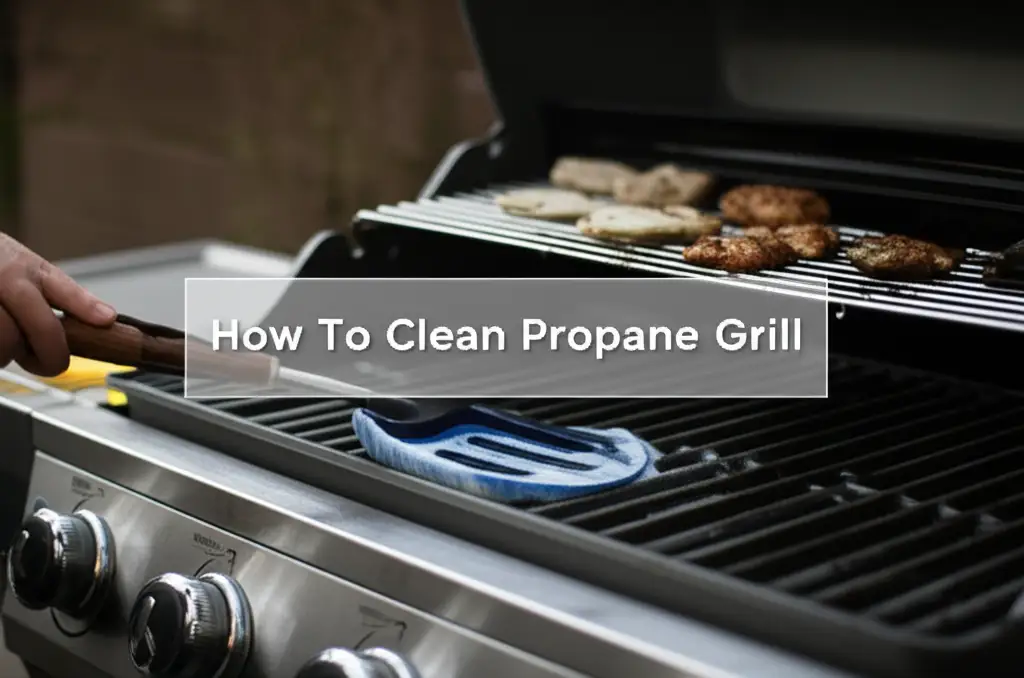
Sparkling Grills: How to Clean Your Propane Grill
Imagine a perfect summer evening. You fire up your grill, ready to cook delicious food. Then you open the lid. Instead of shiny grates, you see a greasy, carbonized mess. This sight is not appealing. It also affects your food’s taste and your grill’s performance. Learning how to clean a propane grill is not just about looks. It is about taste, safety, and longevity. Regular grill cleaning keeps your appliance working well. It ensures every meal tastes its best. This guide provides step-by-step instructions. We cover everything from routine cleaning to deep dives. You will learn the best methods for different parts. My aim is to make your grill shine. I want to help you enjoy grilling without worries.
Takeaway:
- Regularly clean your propane grill for best performance.
- Always prioritize safety by disconnecting the propane tank.
- Use specific cleaning methods for different grill materials.
- Maintain burners and internal components to prevent issues.
- Protect your grill from rust and weather damage.
How to clean a propane grill?
To clean a propane grill, first disconnect the propane tank for safety. Remove and deep clean grates, flavorizer bars, and the drip pan. Use a grill brush, warm soapy water, and degreaser. Scrub the firebox and burners. Wipe down the exterior. Finally, reassemble all parts.
Preparing Your Propane Grill for Cleaning
Cleaning a grill begins before you touch a rag. Proper preparation is key. This step ensures safety and efficiency. I always gather my supplies first. Then I take important safety measures. This prevents accidents during the process.
Essential Tools and Supplies
You need the right tools for a thorough cleaning. Do not rush into the job without them. Having everything ready saves time. It makes the job easier. Here is what I recommend:
- Wire grill brush: This is crucial for scraping off cooked-on food. Choose one with strong bristles.
- Stiff-bristled nylon brush: Use this for general scrubbing. It is gentler than wire.
- Warm soapy water: A bucket of this mixture works wonders. It helps loosen grease.
- Degreaser: A commercial grill degreaser cuts through tough grime. It helps remove stubborn grease.
- Sponge or microfiber cloth: These are for wiping down surfaces. They absorb dirt well.
- Bucket: You need a large bucket for soaking parts. It should hold water and soap.
- Rubber gloves: Protect your hands from harsh cleaners. They also keep your hands clean.
- Newspaper or drop cloth: Lay these down to protect your work area. They catch drips and debris.
- Aluminum foil (optional): This can help with some grate cleaning. Learn how to clean grill grates with aluminum foil.
- Vacuum cleaner (shop vac preferred): This removes loose debris inside the firebox.
- Screwdriver: You may need this to remove burners or heat plates.
Crucial Safety Precautions
Safety comes before anything else. Propane is a flammable gas. Always follow safety guidelines. Ignoring these can lead to serious hazards.
- Disconnect propane tank: This is the most important step. Turn off the gas valve. Then disconnect the hose from the tank. Move the tank away from the grill. This eliminates the risk of leaks.
- Allow grill to cool completely: Never clean a hot grill. Wait for it to be completely cool to the touch. Hot surfaces cause burns.
- Work in a well-ventilated area: Cleaning products can produce fumes. Ensure good airflow. This protects your lungs.
- Wear protective gear: Gloves are a must. Eye protection is also wise. This protects against splashes.
By preparing properly, you set yourself up for success. You also ensure a safe cleaning experience. A little planning goes a long way.
Deep Cleaning Propane Grill Grates
Grill grates are where the magic happens. They also collect the most gunk. Cooked-on food and grease become carbonized. Cleaning them is a priority. Different materials require different approaches. I will guide you through each.
Cleaning Cast Iron Grill Grates
Cast iron grates retain heat well. They create beautiful sear marks. However, they are prone to rust if not cared for. Cleaning them requires gentle precision.
- Heat the grates: Turn on the grill for 10-15 minutes. This burns off loose food particles. Turn off the grill. Let the grates cool slightly. They should be warm, not hot.
- Scrape with a brush: Use a stiff wire brush. Scrape away char and debris. Work firmly but avoid excessive force.
- Wash with soap and water: Remove the grates from the grill. Wash them in warm, soapy water. Use a nylon brush or sponge. Do not use harsh detergents. These strip the seasoning.
- Rinse and dry immediately: Rinse the grates thoroughly. Dry them completely with a towel. Moisture causes rust.
- Re-season: Apply a thin layer of cooking oil. Use a paper towel to rub it over all surfaces. Bake them in an oven at 350-400°F (175-200°C) for an hour. This step protects the cast iron. It prevents rust. For more details, learn how to clean cast iron grill grates.
Cleaning Porcelain and Ceramic Grates
Porcelain and ceramic grates are durable. They resist rust well. But their coating is fragile. Abrasive brushes can chip them.
- Heat and scrape: Preheat the grill to loosen debris. Turn it off. Use a nylon brush or soft wire brush designed for porcelain. Scrape gently.
- Soak if needed: For stubborn grime, remove the grates. Soak them in warm, soapy water for 30 minutes.
- Gentle scrub: Use a sponge or soft cloth. Scrub the grates with soapy water. Avoid steel wool or harsh pads. These scratch the coating.
- Rinse and dry: Rinse well with clean water. Dry the grates completely before returning them. Chips lead to rust. You can find more tips on how to clean porcelain grill grates here.
Cleaning Stainless Steel Grill Grates
Stainless steel grates are common. They are durable and relatively easy to clean. They benefit from a good scrub.
- Preheat and brush: Heat the grill for 10-15 minutes. This helps loosen food residue. Turn off the grill. Use a sturdy wire grill brush. Scrub firmly to remove carbon buildup.
- Soak and wash: For a deeper clean, remove the grates. Soak them in a large bucket of hot, soapy water. Add a cup of baking soda for extra cleaning power. Let them soak for an hour or more.
- Scrub and rinse: Use a stiff brush or a heavy-duty sponge. Scrub away remaining grime. Rinse them thoroughly with clean water.
- Dry completely: Dry the grates with a towel. You can also air dry them in direct sunlight. Ensure they are completely dry before storage. This prevents water spots. Discover more methods on how to clean stainless steel grill.
Alternative Grate Cleaning Methods
Sometimes you do not have a brush. Or you want different options. Several methods work well.
- Onion method: Cut an onion in half. Skewer it with a fork. Rub the cut side over warm grates. The onion’s natural acids cut through grease. This is a simple way to clean your grill with onion.
- Aluminum foil: Crumple a large piece of aluminum foil. Hold it with tongs. Use it as a scrubber on warm grates. It is surprisingly effective.
- Steam cleaning: Place a tray of water on the grill. Close the lid. Let it steam for 15 minutes. The steam loosens debris. Then brush the grates. This method is helpful if you need to clean grill without brush.
- Power washer (with care): Some people use a power washer for grates. Use a low-pressure setting. Keep distance. High pressure damages finishes.
Always remember to dry grates completely. This prevents rust and prolongs their life. Clean grates make food taste better. They also cook more evenly.
Cleaning Inside Your Propane Grill
The grates are just one part. The inside of your grill needs attention too. This includes flavorizer bars, heat tents, and the firebox. Neglecting these areas affects performance. It also increases flare-ups. I always tackle these next.
Maintaining Flavorizer Bars and Heat Tents
Flavorizer bars sit under the grates. They protect burners from grease. They also vaporize drippings, adding flavor. Over time, they collect burnt-on residue.
- Remove bars: Carefully lift out the grill grates. Then remove the flavorizer bars. They usually just lift out.
- Scrape off debris: Use a putty knife or stiff scraper. Scrape off any caked-on food or carbon. Work over a trash can.
- Wash and dry: Wash the bars in warm, soapy water. Use a sponge or brush to scrub them clean. Rinse thoroughly. Dry them completely. Moisture leads to rust.
- Inspect for damage: Check for rust spots or holes. Damaged bars do not protect burners well. They also do not vaporize drippings effectively. Replace them if heavily rusted or deteriorated.
Cleaning Grill Burners and Venturi Tubes
Burners are the heart of your grill. They deliver the flame. Clogged burners mean uneven heat. They also cause weak flames. Cleaning them is vital for good grilling.
- Remove burners: Carefully remove the cotter pins or screws holding burners. Lift them out. Be gentle with the venturi tubes. These are the tubes connecting to the gas valves.
- Brush burner ports: Use a small wire brush or a stiff-bristled brush. Brush along the entire length of each burner. Focus on the gas ports. These are the small holes where the flame comes out. Remove any spider webs or debris. Spiders often build nests in venturi tubes.
- Clear venturi tubes: Use a long, flexible wire or a straightened paper clip. Carefully push it through the venturi tubes. This clears blockages. Do not use water or solvents inside the tubes.
- Inspect and replace: Check burners for severe rust or cracks. If the flame pattern is uneven even after cleaning, replacement may be necessary. Reinstall burners carefully. Ensure they align with the gas valves. For detailed steps on how to clean burners on a gas grill, see this guide.
Scraping the Firebox Interior
The firebox is the main body of the grill. It collects grease and charred bits. This buildup is a fire hazard. It also affects airflow.
- Scrape walls: Use a plastic putty knife or a grill scraper. Scrape the inside walls of the firebox. Push debris towards the bottom opening.
- Remove debris: Scoop out the loose debris. You can use a small dustpan and brush. A shop vacuum is also very effective. It sucks up all the small pieces.
- Wipe down: Wipe the interior with a damp cloth. You can use a mild degreaser solution. Avoid spraying water directly onto electrical components.
- Clean grease tray: The drip pan or grease tray collects all the drippings. Remove it. Empty the contents into a trash can. Wash it with warm, soapy water. A degreaser helps here. Line it with aluminum foil for easier future cleaning.
Proper internal cleaning ensures safe operation. It also makes your grill perform better. Your food will cook more consistently.
Cleaning the Exterior of Your Propane Grill
A clean grill exterior enhances curb appeal. It also protects the grill’s structural integrity. Dirt, dust, and grease can accumulate. This makes your grill look old. It can also cause rust on metal parts. I always give the outside a good scrub.
Wiping Down the Grill Hood and Side Shelves
The lid and side tables are visible parts. They show grime quickly. Cleaning them is straightforward.
- Mild soap solution: Mix warm water with a mild dish soap. This is safe for most finishes.
- Wipe surfaces: Use a soft sponge or microfiber cloth. Dip it in the soapy water. Wipe down the entire hood exterior. Clean the side shelves thoroughly. Pay attention to corners and edges.
- Rinse and dry: Rinse the cloth with clean water. Wipe off all soap residue. Dry the surfaces completely. Water spots can form on stainless steel. Use a stainless steel cleaner or polish for a streak-free shine if your grill is stainless steel. This guide on how to clean stainless steel grill offers more tips.
- Remove stubborn stains: For baked-on grease or black marks, use a non-abrasive grill cleaner. Apply according to product instructions. Avoid harsh scrubbers. They scratch the finish. If your grill is black, a specific cleaner for black finishes can help. Check this article for advice on how to clean outside of black grill.
Cleaning the Control Panel and Knobs
The control panel often collects grease and sticky residue. It also has important markings. Clean it gently to avoid damage.
- Gentle cleaner: Use a soft cloth dampened with warm, soapy water. Or use a general-purpose household cleaner.
- Wipe carefully: Wipe around the knobs and buttons. Do not spray water directly into the gas valve area. This prevents water damage.
- Clean knobs: Remove the control knobs if possible. Wash them in warm, soapy water. Use a soft brush for crevices. Rinse and dry them completely. Reattach them once dry.
- Maintain markings: Avoid abrasive cleaners or scrubbers on the control panel. They can erase temperature markings. Readability is important for safe operation.
Managing the Grease Tray and Drip Pan
The grease management system is crucial. It collects fats and oils. A full or dirty pan is a fire hazard.
- Remove and empty: Slide out the grease tray and drip pan. Empty any accumulated grease or food particles into a trash bag.
- Scrape and wash: Use a plastic scraper to remove solidified grease. Wash the tray and pan thoroughly with hot, soapy water. A strong degreaser helps cut through stubborn residue.
- Rinse and dry: Rinse the pan completely. Ensure no soap remains. Dry it fully to prevent rust.
- Lining for future ease: For easier cleanup next time, line the drip pan with heavy-duty aluminum foil. You can also buy disposable drip pan liners. This makes disposal simple.
A clean exterior keeps your grill looking new. It also prevents rust and corrosion. Regular exterior cleaning extends the life of your appliance. It also makes you proud of your outdoor cooking space.
Post-Cleaning Maintenance and Protection
Cleaning is not the final step. Proper post-cleaning care is essential. It protects your hard work. It also prepares your grill for the next use. I always finish with these important steps.
Seasoning Grill Grates After Cleaning
Seasoning is vital for cast iron grates. It is beneficial for other types too. It creates a non-stick surface. It also protects against rust.
- For cast iron: After cleaning and drying, apply a thin, even coat of high-smoke-point oil. Vegetable oil, canola oil, or flaxseed oil work well. Use a paper towel to wipe off excess. Bake in an oven or on the grill (indirect heat) at 350-400°F (175-200°C) for an hour. Let it cool slowly. This bonds the oil to the metal.
- For other grates: Lightly oil stainless steel or porcelain grates before the next cook. This helps prevent food from sticking. It also adds a layer of protection. Use cooking spray or a lightly oiled paper towel.
Seasoning makes subsequent cleanings easier. It also ensures food does not stick during cooking.
Protecting Your Grill with a Cover
A grill cover is an investment. It protects your grill from the elements. Sun, rain, and snow cause damage. They lead to rust and fading.
- Choose a quality cover: Select a cover made from durable, weather-resistant material. It should fit your grill size correctly.
- Cover when cool and dry: Only cover your grill when it is completely cool. Covering a hot grill can create condensation. This promotes rust. Ensure the grill is dry.
- Regularly clean the cover: Wipe down the cover periodically. This prevents mold and mildew growth. If you find mold, learn how to clean mold off grill covers or parts here.
- Benefits: A cover protects against rust, fading, and dirt buildup. It keeps your grill looking new longer. It extends its overall lifespan.
Regular Cleaning Schedule Tips
Consistency is key for grill maintenance. A regular schedule prevents major buildup. It makes deep cleaning less frequent.
- After every cook: Scrape grates with a grill brush while they are still warm. This removes fresh food residue.
- Monthly (or every 5-10 uses): Perform a more thorough grate cleaning. Clean flavorizer bars and the drip tray.
- Seasonally (2-4 times a year): Conduct a deep clean. Disassemble components. Clean burners and the firebox interior. This is essential after the peak grilling season.
- Before first use of the season: Always inspect and clean your grill after winter storage. This ensures it is ready for use.
By following these maintenance steps, your grill will stay in top condition. You will enjoy countless delicious meals. Your grill will last for many years.
Common Propane Grill Cleaning Mistakes to Avoid
Cleaning your propane grill is beneficial. But mistakes can cause damage. They can also create safety risks. Knowing what not to do is as important as knowing what to do. I want to highlight common pitfalls.
Using Harsh Abrasives
Many people think more scrubbing means cleaner. This is not always true. Especially with delicate surfaces.
- Risk: Steel wool, abrasive sponges, or overly aggressive wire brushes can scratch surfaces. They damage porcelain enamel. They can strip seasoning from cast iron. Scratches lead to rust. They also create sticky spots.
- Solution: Use appropriate tools. For porcelain, use a nylon brush or a soft wire brush designed for porcelain. For cast iron, use a nylon brush or gentle scraper. Always choose the least abrasive option first.
Ignoring Grease Buildup
Grease is a friend to flavor, but an enemy to cleanliness. Ignoring it leads to big problems.
- Risk: Accumulated grease in the drip pan or firebox is a major fire hazard. Grease fires can be dangerous. It also attracts pests. Old grease causes uneven heating and bad smells.
- Solution: Regularly empty and clean the drip pan. Scrape the firebox interior after several uses. Never let grease accumulate heavily. Consistency in grease management is vital for safety.
Neglecting Safety Steps
Cleaning chemicals and gas lines demand respect. Safety is paramount. Cutting corners here is dangerous.
- Risk: Forgetting to disconnect the propane tank risks gas leaks or explosions. Cleaning a hot grill causes severe burns. Using flammable cleaners near gas components is hazardous.
- Solution: Always disconnect the propane tank first. Ensure the grill is completely cool. Use non-flammable cleaning products. Work in a well-ventilated area. Wear protective gear like gloves and eye protection. These steps protect you and your property.
Not Drying Components Completely
Water and metal do not mix well, especially with heat involved.
- Risk: Leaving components wet leads to rust. This is particularly true for cast iron and raw steel parts. Rust degrades components. It reduces their lifespan.
- Solution: After washing, thoroughly dry all components. Use a towel. Allow parts to air dry in the sun if possible. Ensure no moisture remains before reassembly or storage. Seasoning cast iron immediately after drying helps too.
Skipping Burner Maintenance
Burners are hidden, so they are often forgotten. This oversight impacts performance.
- Risk: Clogged burner ports cause uneven flame. This leads to hot spots and cold spots. Food cooks inconsistently. Blocked venturi tubes from insects or debris prevent proper gas flow. This can cause low flames or no flame.
- Solution: Regularly remove and inspect burners. Use a small wire brush to clear ports. Clear venturi tubes with a long, flexible wire. Ensure all holes are clear. This maintains even heat distribution. It ensures efficient gas use.
Avoiding these common mistakes helps you clean your grill safely and effectively. It ensures your propane grill remains a reliable cooking companion for years to come.
FAQ Section
Q1: How often should I deep clean my propane grill?
You should deep clean your propane grill at least twice a year. Do this at the beginning and end of the grilling season. For frequent grillers, a quarterly deep clean is better. Regular post-cook scraping extends the time between deep cleans.
Q2: Can I use oven cleaner to clean my grill grates?
No, I do not recommend using oven cleaner on grill grates. Oven cleaners contain harsh chemicals. These can damage the finish of your grates, especially porcelain. They are also difficult to rinse completely. Residue can transfer to food. Stick to specialized grill cleaners or natural solutions like soap and water.
Q3: What is the best way to prevent rust on my grill?
Preventing rust involves several steps. Always dry your grill components completely after cleaning. Season cast iron grates regularly. Cover your grill with a high-quality, weather-resistant cover when not in use. Store your grill in a dry place if possible.
Q4: How do I remove stubborn, burnt-on food from my grill?
For stubborn, burnt-on food, first preheat the grill to loosen debris. Then use a sturdy wire grill brush for scraping. For tougher spots, remove grates and soak them in hot, soapy water with a degreaser or baking soda. A plastic scraper or specialized grill stone can also help.
Q5: Is it safe to clean a propane grill with water?
Yes, it is safe to clean most parts of a propane grill with water and soap. Avoid spraying water directly into the gas valves or electrical components. Always disconnect the propane tank first. Ensure all metal parts are thoroughly dried immediately after washing to prevent rust.
Q6: Can I use a pressure washer on my propane grill?
You can use a pressure washer for grill grates or the exterior, but with extreme caution. Use a low-pressure setting and keep the nozzle at a distance. High pressure can damage delicate finishes, control panels, or internal components. It may also force water into areas it should not be. Hand washing is generally safer and more controlled.
Conclusion
Cleaning your propane grill is more than a chore; it is an investment. A clean grill performs better. It also lasts longer. Most importantly, it produces delicious, safe food. We covered how to clean propane grill parts, from grates to burners. We discussed safety and common mistakes. You learned the importance of preparing your grill. You also learned about different grate materials. Maintaining your flavorizer bars and cleaning the firebox are vital. The exterior also needs attention. Finally, post-cleaning care ensures longevity.
I encourage you to adopt a regular cleaning routine. It will make your grilling experience much more enjoyable. Your grill will thank you with perfectly cooked meals every time. So grab your supplies. Get ready to transform your propane grill into a sparkling clean machine. Enjoy the process. Enjoy the great food. Happy grilling!
- propane grill cleaning
- grill maintenance
- gas grill cleaning
- BBQ cleaning
- grill grates

